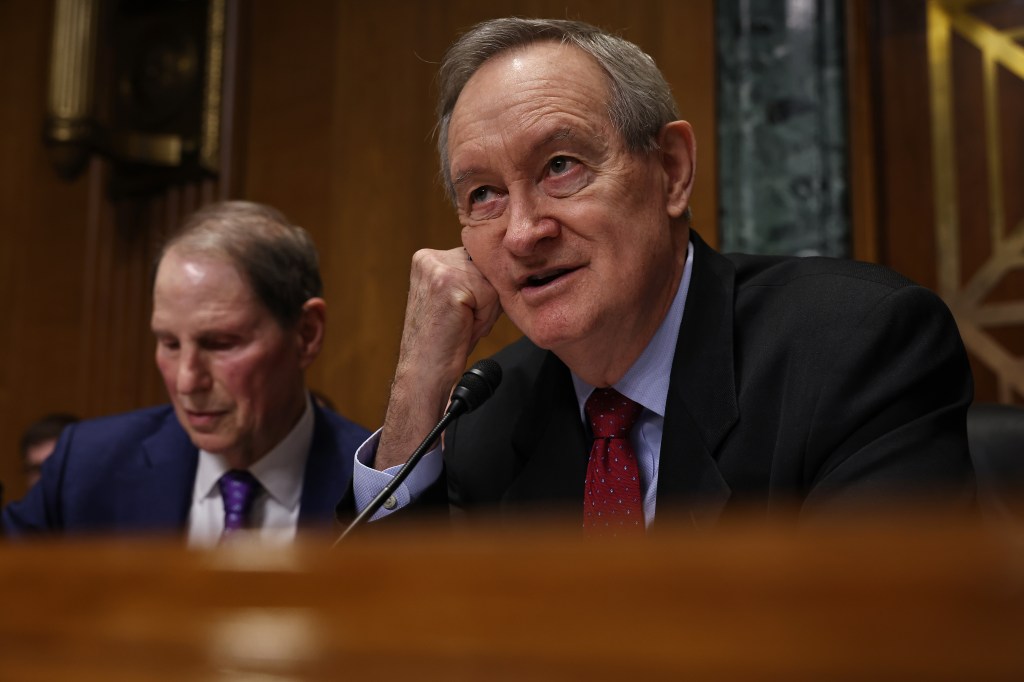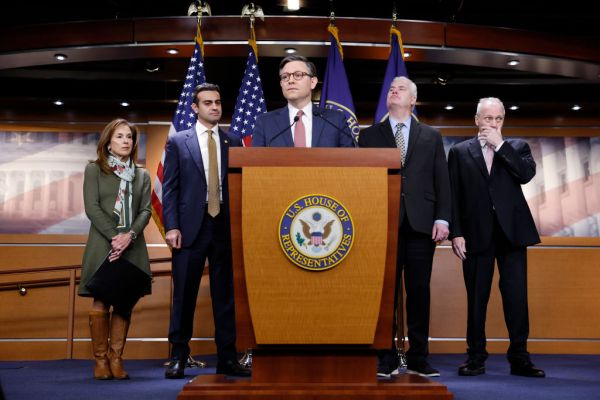The House of Representatives and the Senate are on a collision course as they undertake competing strategies to put in place President Donald Trump’s legislative agenda, and there is no shortage of complex problems facing them.
One of those is extending the expiring provisions of the 2017 Tax Cuts and Jobs Act (TCJA), most of which are due to sunset at the end of the year, resulting in a tax increase for most Americans. As the House prepares “one big, beautiful bill” with border security, tax, and spending provisions, it is looking at extending those provisions for 10 years. However, senior Senate Republicans, including Majority Leader John Thune, have signaled that they will settle for nothing less than making the tax cuts permanent, vowing to kill any bill that “only provides temporary relief from tax hikes.”
Republicans are using the budget reconciliation process to push through spending and tax cut legislation, a way to avoid a Senate filibuster and pass the package with a simple majority. The wrinkle? Per budget reconciliation rules, legislation Congress passes through this process can not increase the deficit beyond the 10-year window of the budget resolution.
But how much extending the tax cuts adds to the debt depends on how the impact of those cuts is measured. House Republicans plan to add a total of $4.5 trillion to the deficit to extend the TCJA provisions for 10 years. That’s the cost projection under the “current law” baseline, under which the Congressional Budget Office operates. A current law estimate assumes that the tax cuts will expire at the end of 2025 and measures any change in spending and revenue relative to what the law would be after the cuts expire.
Senate Republicans, especially Finance Committee Chair Mike Crapo, are looking to use a different baseline measurement: “current policy,” which measures the impact of a proposed law relative to legislation already on the books. This estimate assumes that the expiring TCJA provisions will continue in perpetuity, so the cost of making them permanent is officially zero dollars.
“It’s the most accurate reflection of reality,” Neil Bradley, the U.S. Chamber of Commerce’s executive vice president and chief policy officer, told The Dispatch. “The reality is not forecasted changes. It’s, what are people and employers paying in taxes today?”
Opponents counter that, no matter how the government accounts for the impact of the tax cuts under the current policy baseline, the effect on the deficit is still real and something that lawmakers need to be transparent about.
“If they extend the tax cuts, I think they’re going to increase the deficit no matter what,” Maya MacGuineas, president of the nonpartisan policy organization Committee for a Responsible Federal Budget, told The Dispatch. “I don’t think this bill is going to be fully paid for—as much as I believe that it should be—but I think using a current policy baseline hides more of what they’re doing, and, therefore, they might make larger tax cuts or fewer offsets. No matter what, I think using a current policy baseline is a pure accounting gimmick to avoid the actual effort of budgeting.”
But Bradley argued that scoring under a current policy baseline would not impede the goal of reducing spending.
“The goal ought to be—because the deficits are driven by a spending problem—to get Congress to focus on that spending side of it, and a current policy baseline doesn’t deter from that in any way,” he said.
But pursuing a current policy baseline would require the approval of the Senate parliamentarian, the chamber’s rulekeeper. There does not appear to be any precedent for passing policy in reconciliation under a current policy baseline. Neither Bradley nor MacGuineas knew of one.
Sen. Elizabeth Warren of Massachusetts and other Democrats sent a letter to the Joint Committee on Taxation last week asking whether the committee has used a current policy baseline to measure the impact of legislation being considered on the Senate floor.
“I don’t think they can do it. … I don’t think they have the authority,” Warren told The Dispatch.
Finance committee staff pointed to the fact that President Barack Obama’s administration argued that the government should use a current policy baseline to measure the impact of extending parts of President George W. Bush’s tax cuts in 2013. While Obama did make the argument, the bill he signed did not go through reconciliation, having passed the Senate with 89 votes.
There is also the question of getting congressional Republicans on board. Odds look good in the Senate, as Sens. Ron Johnson and Rick Scott, two fiscal hawks, both told The Dispatch they supported the move.
“I’ve been promoting it,” Johnson said Thursday before the Senate passed its budget resolution. “That’s key to my three-step process here: Let’s provide border funding now. Next thing, we should use the 2025 budget that will be passed in here tonight and just extend current policy. Do nothing else. So what that does is it takes a massive automatic tax increase off the table, which was a big problem with the Tax Cuts and Jobs Act, that it automatically expires.”
House Republicans are also on board, so long as the parliamentarian approves, according to Punchbowl News. There is also the question of getting spending hawks in the House to agree, but one of them appeared open to it Monday.
“I would definitely support it,” Rep. Ralph Norman, who initially voted against giving Speaker Mike Johnson another term to lead the House earlier this year, told The Dispatch.
He added that he was not worried that using a current policy baseline would mask the impact on the deficit of a TCJA extension.
“I think we’re going to have a rate of growth that’s going to cover that,” he said. “With everything else that’s being uncovered, I think it’ll give us some real cuts.”










Please note that we at The Dispatch hold ourselves, our work, and our commenters to a higher standard than other places on the internet. We welcome comments that foster genuine debate or discussion—including comments critical of us or our work—but responses that include ad hominem attacks on fellow Dispatch members or are intended to stoke fear and anger may be moderated.
With your membership, you only have the ability to comment on The Morning Dispatch articles. Consider upgrading to join the conversation everywhere.